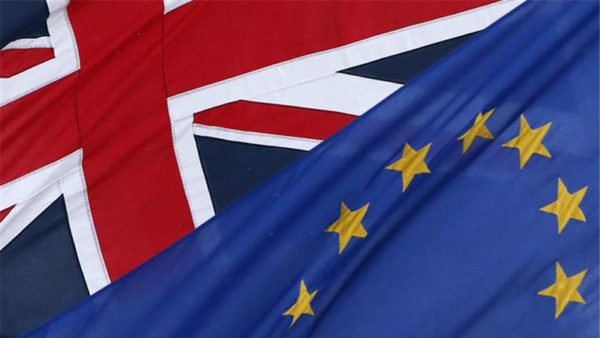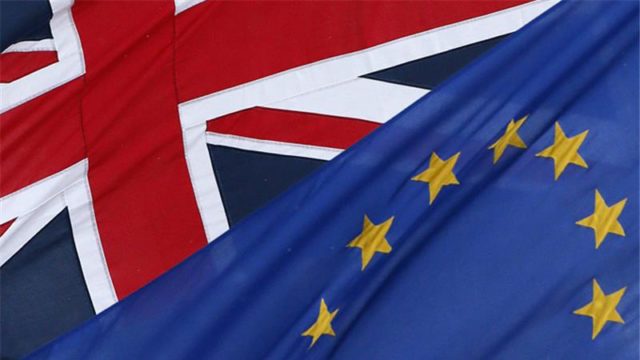Global Issues
The Huge Costs of the British Exit from the European Union -By Odilim Enwegbara


Thanks to the union of several tiny countries in the island of British Scotland, Wales, Northern Ireland, and led by England, with both a large population and market on its side, Britain gradually became the economic and military jewel of Europe.
And thanks to the stability and peace that the union brought to these island states now under the United Kingdom, Britain, for centuries, led the way to economic development, championing the first industrial revolution, which suddenly made it the most powerful nation in the world.
Until 1945 when officially replaced by America as the leader of the world, Britain literally dominated economic and military power around the world.
It was this imperial dominance that kept France and Germany so envious that they did everything possible to dismantle Britain’s hegemonic military and economic powers at all costs. Little wonder every war fought in Europe during the one hundred years of British hegemony, including all the devastating Napoleonic Wars across Europe, was conducted in an effort to bring down Britain. But as Europe, led by France and Germany, endlessly fought Britain, the continental United States was able to rise, taking full advantage of the ceaseless European wars.
Even with the eventual defeat of Britain in 1945, followed by efforts to unite the once warring continent, Britain which reluctantly joined hands with other European nations, remained Eurosceptic.
In other words, Britain never hid its detest for any form of European unity, and seeing itself as a minority in relation to France and Germany, it is understandable why it was never a fan of the European Union. And it is because of this Euro-scepticism that it had always keeping one foot in and one foot out of the Union.
While London grudgingly accepted EU’s customs union, which it saw as being more beneficial than otherwise, still it was fierce in its refusal to joining the Euro as a common currency. Had London accepted the Euro, not only would that mean the end of Britain’s glorious past represented by the pound sterling with the queen’s image on these, but also Britain’s special relationship with America, which has been the reason for London, and not Frankfurt, being the world’s second financial capital, after New York’s Wall Street.
Notwithstanding that Britain lost its glorious economic and military imperial powers to the US, Washington has never been closer to any other country in Europe and of course in the entire world than it is to London.
For this singular reason, the rest of Europe, particularly the two big and powerful countries of Germany and France, have always seen Britain as America’s mole in Europe, doing everything to make sure that there is no powerful Europe in such a way to oppose American hegemony in the world.
So, keeping Europe fragmented has always been in the interest of both Washington and London. In keeping things this way, the CIA and the MI6 work closely in intelligence sharing more than any other two countries, in order to undermine nations that might seek to oppose the status quo created since 1945.
For these reasons, and due to the special relationship between the US and the UK, there has been the need for the non-negotiability of Britain’s sovereignty. Keeping Europe and the world that way has been what London takes seriously, no matter who occupies number 10 Downing Street.
The Euro-dollar, which is about the largest concentration of dollars outside the US, has made the City of London the world’s second financial capital, and as a result Britain has always stood in the way of the Euro currency union. Notwithstanding London’s opposition of to the Euro, the entire EU preferred London to Frankfurt as Europe’s financial capital.
But, what continues to give Britain its economic power and advantage over the rest of EU, notwithstanding its weak industrial and manufacturing base, which is far behind those of Germany and France, has been its massive investment and economic ties with some its former colonies in Africa and Asia.
In fact, as independent as the whole of Australia and Canada claim to be, their economies and politics are dominated by people who migrated there from Britain.
Now, what was earlier like a play has become a reality, with Britain having more to lose from leaving the European Union, starting with UK’s newer reduced influence in a world in which it once had been a major voice in Europe.
For one thing, the US, given the now evident shift and reality, would prefer having closer economic and military ties with the EU than only Britain, or else its global hegemonic power could be undermined.
With the apparent movement of the European financial capital from London to Frankfurt, it is obvious that London’s role as the second financial capital is already threatened as the financial gateway of Europe, and the Eurobond and Euro-dollar dominated by London will no longer be the case.
Also, the world’s fifth largest economic status that Britain has been enjoying, due to the Eurozone customs union, will be jeopardised, especially with British goods now encountering fierce rejections in the EU. And as British goods and services encounter Brussels’s high tariff walls, that would likely trigger new global economic rearrangements, including a total recourse to nationalist economic protectionism.
With a new global race towards economic protectionism, countries like ours that have been forced into dumping grounds for western superior and Asian inferior but cheaper manufactured goods will begin to breathe fresh air in a way that bids them the opportunity of taking back their economic fates in their hands.
Nigeria, in particular, will have to roll out draconian tariff policies in an effort to protect its infant industries from strong and powerful foreign made goods that have forced most small businesses in the country into premature bankruptcy.
As anti-British sentiments grow across Europe, the real estate market and tourism industry in Britain, which is a major driver of the UK economy, will severely suffer, with most Europeans avoiding to visit or live in Britain, especially as a result of having to obtain visas to travel or reside in Britain.
Also, British universities and English Language schools, which have been enjoying patronage from European students schooling in Britain will no longer be the case.
Over four million non-British Europeans living and working in the UK, including many international footballers, will have to leave Britain because of the difficulty of getting British work permits. This exodus of highly skilled workforce would be a big blow to the British economy, which is more of a service than an industrial economy.
Britain will not only have to renegotiate its trade agreements with the EU, but also with the rest of the world, where London would now go as a weaker negotiator. The good news for countries in Africa, like Nigeria, is that, faced with immense difficulty to invest in EU, most British investors will begin to look towards African markets for their investments.
As Britain’s real estate market plunges, looking for a new substitute would mean looking towards booming real estate markets in countries like Nigeria.
The Commonwealth, which Britain has been using to get undue preferential investments from its former colonies, including keeping substantial portions of their non-dollar foreign exchange reserves in pounds sterling, would likely witness a lot of exits, since most members would have to rethink and justify their continued Commonwealth membership.
This difficulty in trade relations affecting Scotland and Wales would force these two nations to re-evaluate their membership of the UK to the extent that their separatist politicians could insist on referenda on their continued membership of the UK.
And should they succeed in leaving the UK and joining the EU, England would end up as the tiny economy it used to be before May 1, 1707, when the United Kingdom was created.
Denied free and easier access to the EU market, most British companies, particularly automakers such as Range Rover and international oil companies such as Shell BP that have their major markets in the EU, would think of relocating from Britain to the Eurozone economy since that is the only way they could continue to enjoy unrestricted access to the EU’s large consumer market.
Countries in Africa like Nigeria that still invest in Britain, particularly in the country’s overpriced real estate market, will have to begin to sell off since they would not want to see the value of their real estate plummet as the real economy of Britain plunges.
While NATO will remain the major military power comprising the US and Europe, the absence of the UK as a major player in the EU military and security decision-making will adversely affect the US’ use of Britain to have most of its way in such decisions.
Besides major military hardware and software, EU businesses enjoyed by Britain’s Royal Military industrial complex, Airbus, which besides using mostly Rolls Royce engines and British navigational technologies, and thousands of British engineers, would certainly be curtailed. Large scale EU driven research and development will exclude UK, along with hundreds of billions of dollars annually spent on subsidising European agriculture, which would no longer be enjoyed by British farmers.
But, to be fair to Britain, some pertinent questions include: how come major EU political and economic institutions were shared among only three countries—Belgium, France and Germany—without the consideration of locating at least one of these institutions in Britain? Also, why the huge influx of unskilled EU labour to Britain, including those who have to relocate there simply to take advantage of its unemployment benefits—a cost borne by British taxpayers?
Odilim Enwegbara, a development economist, can be reached through basil_enwegbara@yahoo.com.


















